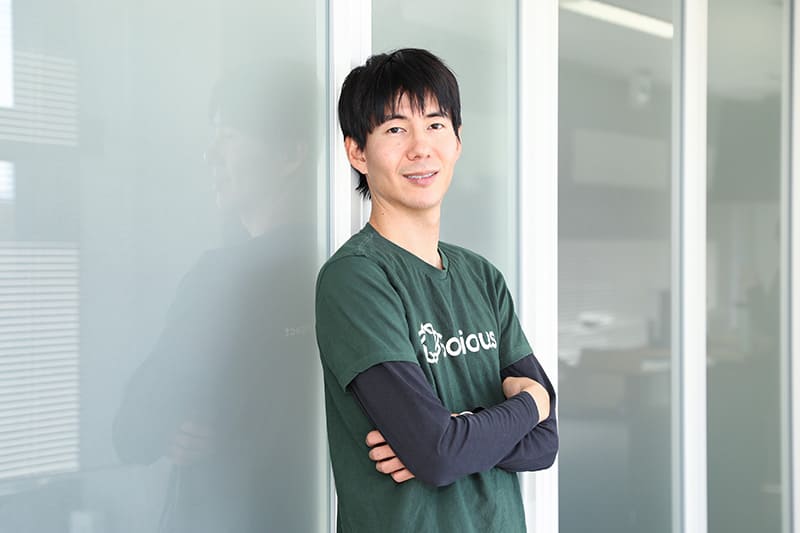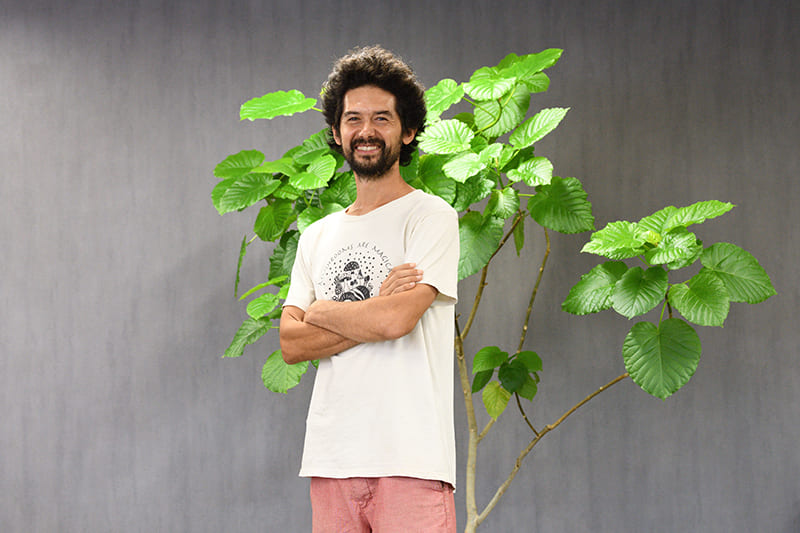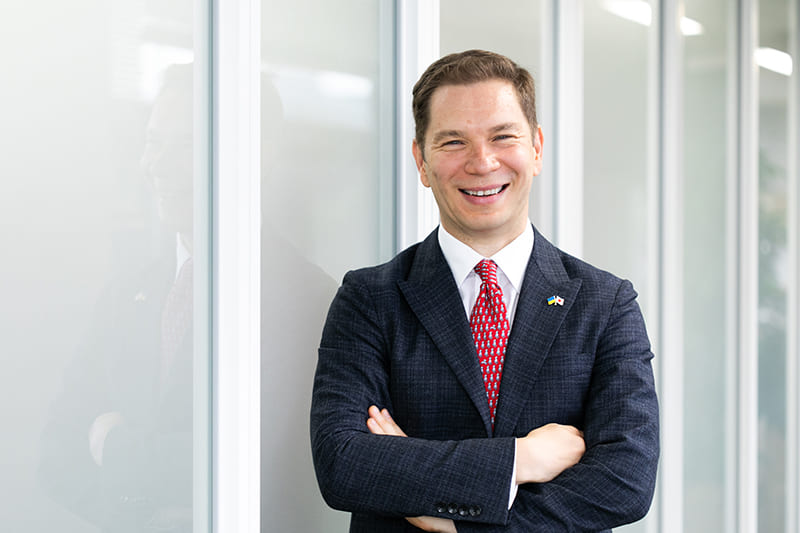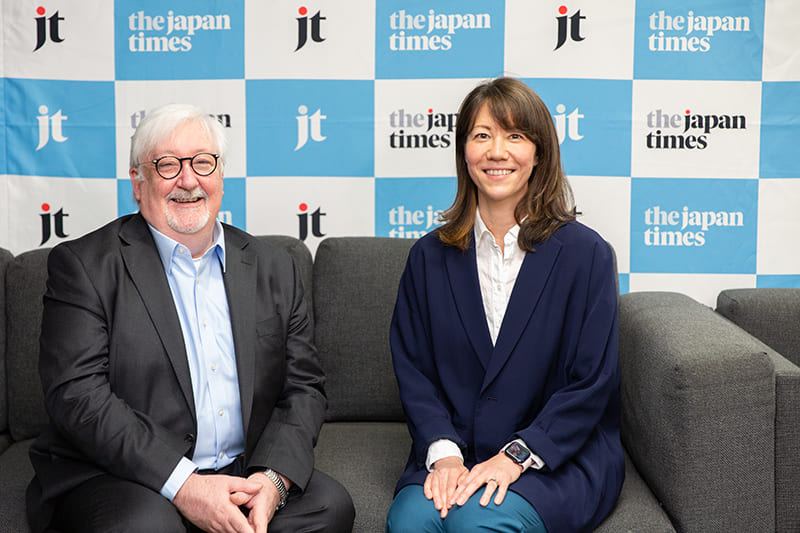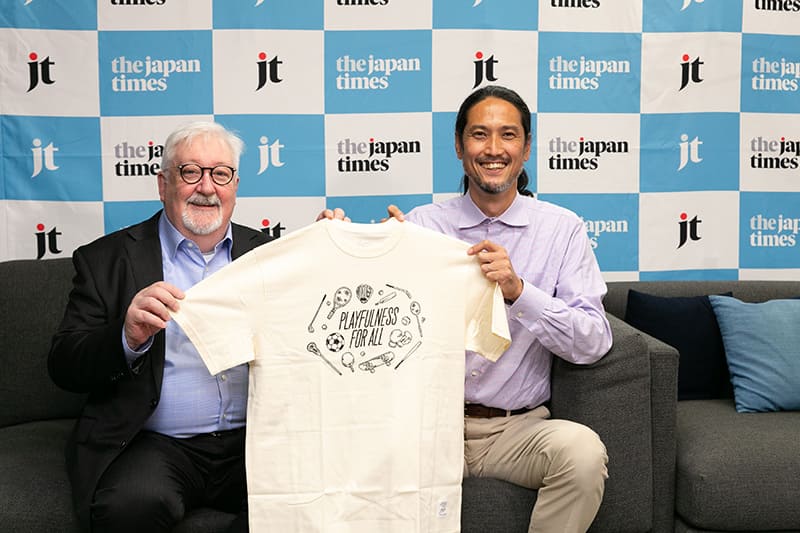November 25, 2024
TELL leaders discuss mental challenges in COVID era

Note: This story discusses mental troubles and suicide.
The word “health” generally conjures images of clean eating and regular exercise. But beyond physical health, mental health is an often-neglected facet of wellness — particularly for foreigners in Japan. The challenges of living abroad, global economic and political instability, and increasingly disconnected human interactions in the wake of COVID all complicate the challenges that many face with their mental health.
Vickie Skorji and Billy Cleary at TELL Japan have dedicated their careers to bringing mental health resources to Japan’s international community. Skorji, who has a master’s degree in counseling, is director of TELL’s Lifeline, managing workers who take calls from people seeking support and mental health resources. Cleary, who has a master’s degree and license in marriage and family therapy, is TELL’s clinical director, leading the 30 in-house clinicians who assist people all over Japan. They joined The Japan Times’ Ross Rowbury for a Roundtable discussion centering around mental health in Japan.
TELL (The English-speaking Lifeline) was founded in 1973 as the first English-language support line in Japan. The Lifeline can be used by anyone struggling with their mental health, with an emphasis on suicide prevention. Lifeline workers provide support and resources, and the organization also provides counseling services. The Lifeline is available 24 hours during the weekends and is toll-free.
While the services are primarily provided in English, 38% of callers in 2023 were Japanese, showing a need for TELL’s services in both the international community and the general population. TELL provides face-to-face counseling in its Tokyo and Okinawa offices and has expanded to online sessions through telehealth services. Beyond working with individuals, TELL also has an Employee Assistance Program designed to help organizations provide mental health support to their employees.
TELL has noted that during and following the global pandemic, the need for its services and the severity of its clients’ challenges have continued to increase.
COVID and the internet
Considering the potential of social media platforms, video calling, and the ability to remain in constant touch with others, it could be said that people are more connected than ever before. However, Cleary said, we are “more connected than ever, but more lonely than ever” and emphasized the need for face-to-face interactions to maintain our emotional, mental and social well-being.
The pandemic caused major disruptions in the ways people interact. Burnout, loneliness and depression rates have continued to increase since 2020, with roughly 70% of the workforce being burned out, compared to 45% pre-COVID. Youths are not exempt.
Due to increasing levels of isolation, Japan is seeing alarming increases in youth depression rates and suicides. Schools, parents and workplaces often do not have the knowledge or tools to address these issues.
This is one way TELL can help. It provides workshops to schools and businesses on how to recognize the signs of someone who is struggling and what steps can be taken to help them. It acknowledges how a lot of responsibility is put on managers, teachers and HR departments to help those in need, yet they often are not given the proper training or resources to properly do so, sometimes resulting in an increase to their stress levels.
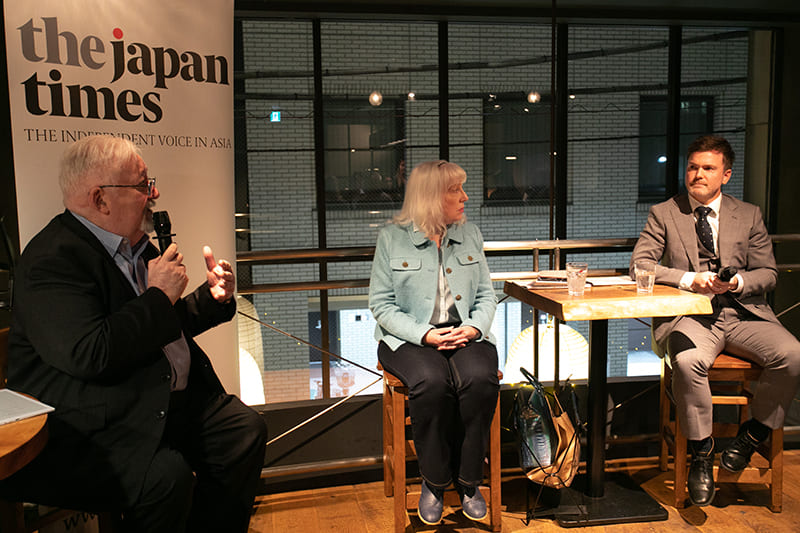
Helping your peers
Skorji emphasized the need for all of us to be able to recognize the signs of someone who is struggling, and noted that the burden cannot be put on the person who is struggling to step up. Cleary mentioned signs such as “a disheveled appearance, lack of sleep, dark bags under the eyes” as physical characteristics of someone in distress. Also notable are major changes in attachment style — someone who is struggling may suddenly withdraw and avoid people, or suddenly begin criticizing and attacking others.
Both Skorji and Cleary said the best help the average untrained person can give is simply to offer human connection — to let them know you see them. It doesn’t have to be invasive; just checking in makes a world of difference to someone who feels alone. “We all need to recognize the signs,” Skorji implored. The increase in remote work in the last few years has erased a lot of “water cooler” culture, in which people are able to meet and chat and where the signs of someone in need are more apparent to others or easier to identify.
Changing the conversation
Skorji and Cleary emphasized the need to reframe the narrative around how the general public views those struggling with their mental health, and reframe how those who are struggling view themselves. Many people suffering from burnout, depression, anxiety and other issues feel the need to shoulder the burden by themselves and hide these difficulties from the people around them. Usually this person’s anxiety levels rise as they continually struggle to keep up with the demands of their daily life.
TELL wants people to understand that reaching out takes bravery — that making oneself vulnerable to loved ones or professionals by opening up is an act of courage. Cleary said, “It’s like handing someone a sword and hoping they use it to defend me” — poignant words that demonstrate he understands how difficult it can be to take that first step.
This is why it is also important for those who are well to recognize the signs of someone in need, to create places of safety where friends and colleagues can feel seen, and to introduce resources such as TELL.
Managing mental health is particularly challenging to those living overseas, especially in the wake of the global disaster that was the COVID-19 pandemic. People have become increasingly disconnected from each other, and it has become easier for someone to slip through the cracks because we spend far less time face to face. TELL provides a safe space for the international community in Japan to seek support and connect with trained support workers and licensed counselors. No one needs to carry the burden of mental health challenges alone — there are people out there who can help to manage the load.

If you or someone you know is going through a crisis, please reach out immediately to TELL’s Lifeline number: 0800-300-8355 (toll-free) https://telljp.com/


